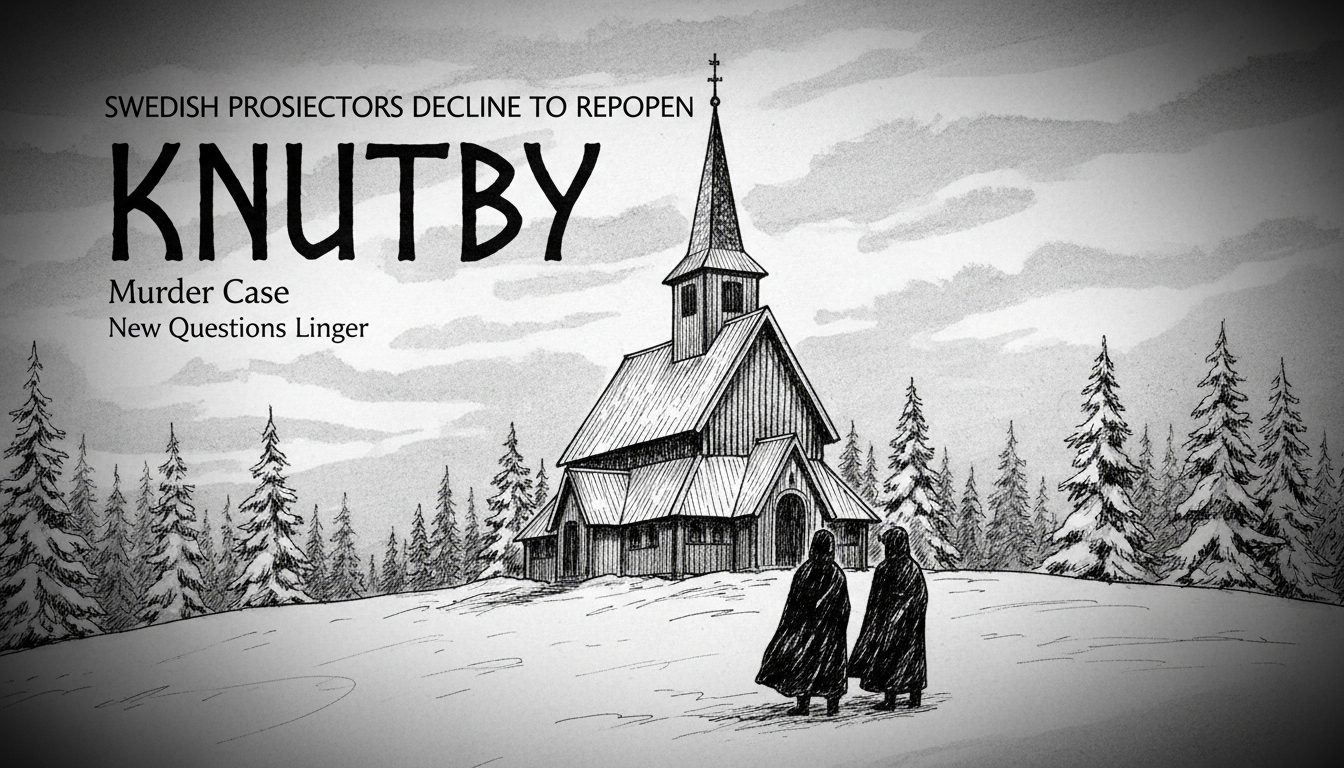Sweden's chief prosecutor will not seek to reopen the infamous Knutby murder case that captivated the nation two decades ago. The decision comes despite new claims about who actually fired the fatal shots in the 2004 religious community murder.
Prosecutor Mats Svensson confirmed the office sees no reason to take action at this time. He stated current information does not present new circumstances warranting case review. The announcement follows revelations from a recent media investigation questioning whether the convicted nanny actually committed the shooting.
Defense lawyer Johan Eriksson plans to file his own appeal to Sweden's Supreme Court. He represents the woman known throughout Sweden as 'the nanny' who received psychiatric care for her role in the crimes. Prosecutors indicate they will not intervene since defense counsel intends to pursue the matter independently.
This case represents one of Sweden's most dramatic criminal investigations in modern memory. The murder exposed unusual religious practices within the Knutby Filadelfia congregation near Uppsala. Community members interpreted biblical concepts about Christ's bride in literal terms involving specific women within their group.
The events unfolded on a cold January morning when pastor Helge Fossmo's wife was found dead in their home. A 30-year-old man was discovered shot in a neighboring house. Fossmo later received a life sentence for instigating both murder and attempted murder. His sentence was later converted to conditional release.
Swedish legal experts note the prosecutor's conservative approach reflects standard practice. They typically require substantial new evidence before reopening closed cases. The burden remains high even for notorious crimes that captured public imagination.
The Knutby case continues to fascinate Swedes because it combined several unusual elements. A religious community, questionable biblical interpretations, and multiple suspects created a perfect storm of public interest. The story revealed how isolated communities can develop their own moral frameworks.
Uppsala residents still recall the case vividly. The quiet community northeast of Stockholm rarely experiences such dramatic events. Local cafes sometimes still discuss how ordinary-looking houses concealed such dark secrets.
Sweden's legal system allows case reviews when new evidence emerges. The Supreme Court considers whether information could have changed original verdicts. This process maintains public confidence in judicial outcomes while correcting potential errors.
The nanny's release in 2011 marked one chapter closing. Now potential new revelations might rewrite established narratives. Swedish true crime enthusiasts follow developments closely through online forums and discussion groups.
What happens next depends on the Supreme Court's assessment of defense arguments. The court must determine whether media investigations constitute legitimate new evidence. Their decision could either cement current verdicts or reopen one of Sweden's most analyzed criminal cases.
International observers watch how Sweden handles historical case reviews. The country's legal system enjoys strong public trust. Maintaining that confidence requires balancing finality with justice when new questions emerge.

